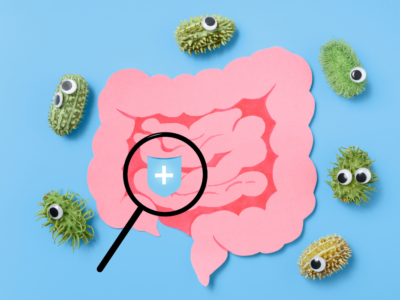Spring bloom is oh so happy, except when those allergies start to kick in. Allergies can begin at any age, but kids are extremely prone to them, causing sneezing, itching, and watery eyes. We know just how challenging they can be especially when kids have been stuck indoors all winter and just want to get out and about! If your kiddo suffers from spring allergies, here are some tips to help manage their symptoms naturally, along with a list of anti-inflammatory foods that can provide a little relief.
1. Keep Indoor Air Clean
- Keep windows closed during peak pollen times and use air conditioning instead
- Regularly vacuum carpets and rugs to remove allergens
- Use an air purifier to trap allergens and improve indoor air quality
2. Monitor Outdoor Activities
- Try to pinpoint specific reactions whether it’s pollen, grass or mold to better help treat those allergies
- Encourage your mini to wear sunglasses and hats to protect their eyes and face from pollen
- Check pollen forecasts before outdoor activities and try to plan outings on days with lower pollen counts
- After playing outside, have them change clothes and wash their hands and face to remove any pollen
3. Use Nasal Saline Irrigation
- Nasal saline irrigation can help clear out allergens from the nasal passages and reduce congestion
- Use a saline nasal spray or a neti pot to rinse the nasal passages gently, made specifically for kids
- Make sure to use distilled or sterilized water for nasal irrigation to avoid infections
4. Stay Hydrated
- Drinking plenty of water helps thin mucus and keeps the nasal passages moist
- Offer your kiddo herbal teas like chamomile or green tea, which have soothing and anti-inflammatory effects
- Avoid sugary drinks and caffeinated beverages, as they can increase dehydration
5. Choose Anti-Inflammatory Foods
- Incorporate omega-3 fatty acids found in fish like salmon or flaxseeds into their diet to reduce inflammation.
- Include brightly colored fruits and vegetables like berries, oranges, and leafy greens, which are rich in antioxidants
- Turmeric, ginger, and garlic are spices that possess anti-inflammatory properties and can be added to meals
Remember: Always consult with a pediatrician before introducing new foods or treatments, especially if your child has allergies or other health conditions.



